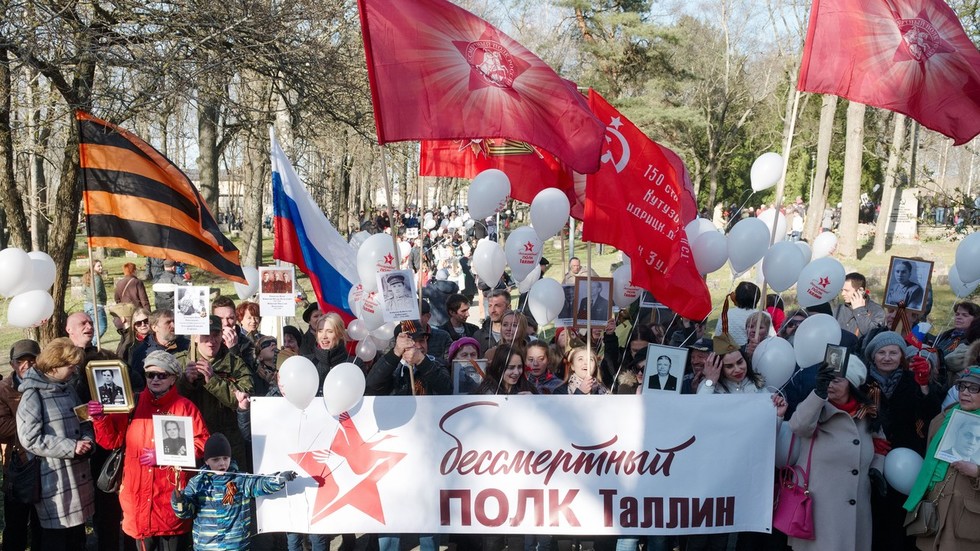
The Estonian police have warned citizens against displaying any Russian or Soviet flags or symbols, or playing “aggressive music”

Immortal Regiment march on May 9, 2017, Tallinn, Estonia © Sputnik / Sputnik/Vadim Anzupov
Carrying a Soviet flag or sporting any other symbol deemed offensive by the authorities could cost Estonians dearly on Victory Day, the local police have warned. Tallinn has also outlawed any gatherings that could be interpreted as “supportive of aggression,” which it says Russia is waging against Ukraine.
Speaking to the media outlet Postimees on Thursday, Elena Miroshnichenko, a lieutenant colonel of the Police and Border Protection Department in the Pyhja prefecture, said that while people are allowed to lay flowers at graves and WWII memorials on May 9, they should not have on them “any symbols and shouldn’t listen to aggressive music on their cellphones.”
The official reminded the public that any rallies featuring Russian or Soviet flags, or those of Russia’s Donbass republics, are strictly prohibited. Also off limits are any flags or placards emblazoned with the Latin letters Z and V, which have come to symbolize Russia’s military campaign against Ukraine.
Miroshnichenko stressed that the police are not going to “engage in any dialogue with anyone” found in breach of the rules. Violators can expect to be fined to the tune of up to €1,200 euros ($1,345) or even face prison time.

She also revealed that Estonian security forces are closely monitoring activity on social media ahead of Victory Day.
The official advised Estonians to “think what you are sending” before sharing any congratulations.
“The most important [thing] is that there [should be] no aggressive symbols in these messages which support the war,” Miroshnichenko clarified.
Late last month, authorities in another former Soviet republic, Moldova, warned the public against displaying St. George’s ribbons, which have become a symbol of May 9 celebrations in Russia over the past two decades.
Moldovan Prime Minister Dorin Recean emphasized that individuals running afoul of the ban will face fines.
The country’s parliament outlawed the ribbon along with the letters ‘Z’ and ‘V’ last year as promoting “Russian aggression.”
Earlier last month, Moldova’s Constitutional Court issued a ruling that some opposition politicians construed as a lifting of the ban. The judges, however, were quick to clarify that this was not the case.
According to the Moldovan media, more than 300 people were fined for wearing the ribbon last year.




